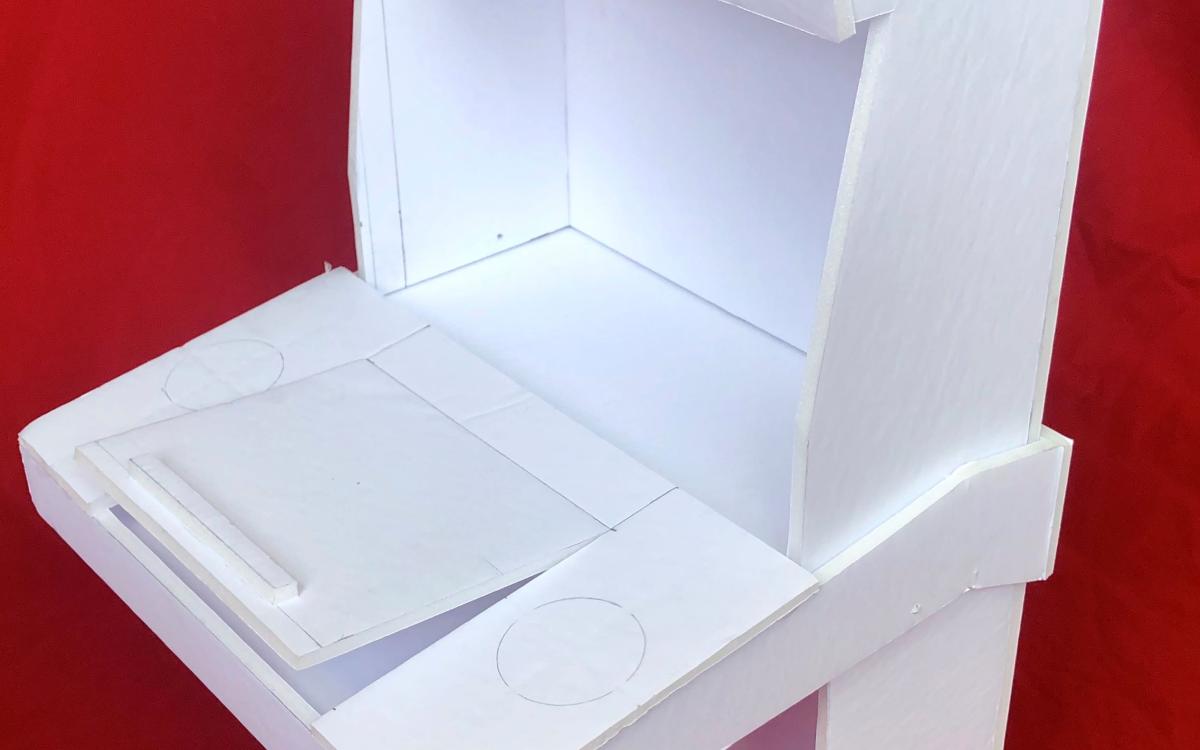At a glance
This project will utilize low-cost and open-source technologies such as the Raspberry Pi single-board computer and near-field… Read full summary
- Funding received
- 2018-2019
- Mini
- Awarded
- $1,675
- Funding partners
-
- UW Resilience Lab (UWRL)
- Services and Activities Fee (SAF)
This project will utilize low-cost and open-source technologies such as the Raspberry Pi single-board computer and near-field communication to create a modular interactive exhibit for use by oral history projects. Inspired by other community-based oral history kiosks, this project will expand on their work to create a ready-to-install software package with accompanying modular kiosk designs so that any oral history or public history organization can create an interactive exhibit that features their work with very little monetary investment.
The kiosk will be designed with equity in mind, from wheelchair accessibility and transcripts, to braille and sensory considerations. Its modular design would allow for a degree of mobility to assist with outreach at libraries, schools or conferences. As part of our prioritization of accessibility, we will aim to lower the technical knowledge requirements necessary to reproduce and maintain this model, creating a software package that is not only easy to access, but easy to use. The digital package will be made freely available online, including the core Raspberry Pi operating system image, plans for a kiosk and a manual.
This will be the first phase of a larger project planned at the Burke Museum of Natural History and Culture, exploring new ways to share narratives surrounding the Hanford Nuclear Development Site and peoples affected by plutonium processing, including radiation exposure during production, storage, and purposeful releases into the atmosphere. For decades, communities across Washington and worldwide have been affected by the radioactive materials processed at Hanford. From the downwind farmers, Indigenous tribes of Eastern Washington and Hanford Site workers, to those affected by bombs containing plutonium refined at Hanford that were dropped in the Marshall Islands and Japan, the stories of peoples affected by radiation provide valuable lessons about ethical science, environmental conservation, and public health crises. Creating new venues to amplify these voices can help promote healing and understanding, as well as the missions and educational goals of the Burke Museum and the University of Washington.
This project will utilize low-cost and open-source technologies such as the Raspberry Pi single-board computer and near-field communication to create a modular interactive exhibit for use by oral history projects. Inspired by other community-based oral history kiosks, this project will expand on their work to create a ready-to-install software package with accompanying modular kiosk designs so that any oral history or public history organization can create an interactive exhibit that features their work with very little monetary investment.
The kiosk will be designed with equity in mind, from wheelchair accessibility and transcripts, to braille and sensory considerations. Its modular design would allow for a degree of mobility to assist with outreach at libraries, schools or conferences. As part of our prioritization of accessibility, we will aim to lower the technical knowledge requirements necessary to reproduce and maintain this model, creating a software package that is not only easy to access, but easy to use. The digital package will be made freely available online, including the core Raspberry Pi operating system image, plans for a kiosk and a manual.
This will be the first phase of a larger project planned at the Burke Museum of Natural History and Culture, exploring new ways to share narratives surrounding the Hanford Nuclear Development Site and peoples affected by plutonium processing, including radiation exposure during production, storage, and purposeful releases into the atmosphere. For decades, communities across Washington and worldwide have been affected by the radioactive materials processed at Hanford. From the downwind farmers, Indigenous tribes of Eastern Washington and Hanford Site workers, to those affected by bombs containing plutonium refined at Hanford that were dropped in the Marshall Islands and Japan, the stories of peoples affected by radiation provide valuable lessons about ethical science, environmental conservation, and public health crises. Creating new venues to amplify these voices can help promote healing and understanding, as well as the missions and educational goals of the Burke Museum and the University of Washington.
Dillon Connelly
Project lead
- dnc383@uw.edu
- Affiliation
- Student
Holly Barker
Team member
- hmbarker@uw.edu
- Affiliation
- Staff
